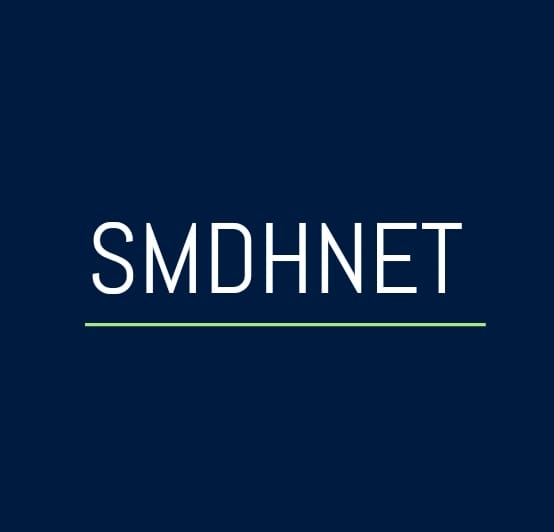
The world of marketing is dynamic, and the game-changer is artificial intelligence (AI). Using AI tools for marketing purposes is no longer a trend, but a must. With AI, companies are able to make informed decisions, enhance customer targeting, and craft highly customized marketing campaigns. As a small business owner or head of a large corporation, you can remain ahead of the pack by knowing how AI will be applied in marketing.
AI marketing software examines customer actions, recognizes trends, and fine-tunes campaigns for optimal impact. From predictive analysis to live interaction, AI gives marketers data that was previously unattainable. So what is the best AI for marketing? It varies, but some of the most widely used tools are ChatGPT for content generation, HubSpot for automation, and Google Analytics for customer insights.
In this article, we will discuss how to apply AI to digital marketing, dissect certain AI tools such as ChatGPT, and give you real-life examples to enable you to create successful marketing strategies. With these tools, you can enhance your brand visibility, get more traffic, and boost conversions.
1. Break Down Consumer Behavior
AI systems are adept at monitoring user preferences and behavior across platforms and have actionable insights. They employ algorithms to learn through purchases, web history, and social media activities to enable firms to comprehend customers better.
Example:
Amazon, the e-commerce behemoth, leverages AI to monitor user likes and recommend products based on prior searches, purchases, and browsing history. Not only does this enhance user experience but also increases sales by presenting the correct product at the correct moment.
How to do it:
Utilize AI-based analytics tools such as Google Analytics 4 or Mixpanel to monitor user activity.
Use tools such as Hotjar to generate heatmaps that reflect which areas of a webpage are getting the most interaction.
Also: 15 Passive Income Ideas That Work in 2025: Build Wealth While You Sleep
2. Build Personalized Experiences
AI can facilitate hyper-personalization with the ability to provide customized experiences to every individual customer. That is more than simply addressing a customer by their name—it encompasses displaying relevant product suggestions, mail, or even web pages adjusted to user profiles.
Example:
Netflix employs AI algorithms to suggest movies and TV shows to a user based on their viewing history and ratings. Personalization retains users and lowers churn.
How to do it:
Utilize Mailchimp or HubSpot to send targeted email campaigns with product suggestions based on user activity.
Apply Dynamic Content on websites to display certain offers or recommendations to returning visitors.
3. Automate Campaign Execution
AI assists companies in automating recurring marketing activities like social media scheduling, email marketing, and lead nurturing, and saves time along with minimizing manual errors. Automation also guarantees sending campaigns at the best times.
Example:
Social media platform Buffer or Hootsuite utilizes AI to schedule and publish content during peak user interaction. AI marketing automation software such as ActiveCampaign can send automatic follow-up emails or retarget ads based on user behavior.
How to execute it:
Set up automatic email drip campaigns for new subscribers in tools such as Marketo or Constant Contact.
Plan and measure social media content through AI-powered social media management tools such as Sprout Social.
4. Ad Performance Optimization
AI can evaluate ad performance in real-time and optimize to deliver better results. Such optimizations can include adjustments to targeting, bids, or even ad copy.
Google Ads Smart Bidding leverages artificial intelligence to automatically change bids to maximize conversions within your budget. Facebook’s ad platform also utilizes AI to optimize ad performance for engagement and click-through rates.
How to do it:
Utilize Google Ads Smart Campaigns to allow AI to handle bids and targeting for your ads.
Utilize AI-powered platforms such as Adzooma for complete ad management on Google, Facebook, and Microsoft.
5. Enhance Content Creation
Content tools driven by AI can assist marketers in developing engaging content within minutes. From blog post structure to social media descriptions, AI tools streamline and accelerate the content creation process. They can even offer SEO-optimized content ideas.
Example:
Jasper AI or Writesonic can generate good-quality blog posts, ad copy, and product descriptions, freeing up marketers from hours of effort. Canva leverages AI to assist in developing graphics that are visually pleasing with customized design recommendations.
How to use it:
Utilize Jasper to create blog titles, captions, or product descriptions.
Employ AI-powered video editing software such as Pictory to produce short, engaging videos for social media.
Why AI is Critical for Modern Marketing Strategies
Data-Driven Decision-Making: AI processes massive volumes of customer data, enabling actionable insights to inform marketing decisions.
Personalization at Scale: AI allows businesses to create hyper-personalized experiences through segmentation and personalizing content based on individual preferences.
Time and Cost Efficiency: By automating manual marketing tasks, time is made available for marketers to concentrate on strategy and creative delivery.
Improved Customer Targeting: AI enhances targeting accuracy to deliver the correct message to the correct customer at the correct moment.
Real-Time Campaign Optimization: AI learns continually from user behaviors and market dynamics, enabling marketers to optimize campaigns in real-time.
How to Use AI to Do Digital Marketing
Audience Segmentation: AI has the ability to process customer information to develop distinct audience segments around behavior, preference, and demographic.
Content Personalization: Utilize AI tools to suggest products or services that reflect the user’s history of interaction. For instance, Amazon leverages AI to make personalized product recommendations.
Automated Email Campaigns: Automated email platforms like Mailchimp enable marketers to send user-action-triggered personalized emails, which results in higher open and click-through rates.
Predictive Analytics: AI can foretell customer actions in the future, enabling companies to create proactively oriented strategies that result in conversions.
Ad Optimization: Ad bidding and placement can be adjusted automatically by AI to optimize ROI on platforms such as Google Ads and Facebook Ads.
How to Use ChatGPT for Marketing
Content Creation: ChatGPT can quickly and effectively produce high-quality blog posts, social media captions, and email campaigns.
Automating Customer Support: Companies can use ChatGPT in chatbots to offer 24/7 customer support, respond to questions, and lead customers through the sales funnel.
SEO Content Optimization: Utilize ChatGPT to find trending keywords and write content that is optimized according to search engine algorithms, resulting in increased organic traffic.
Social Media Engagement: ChatGPT can provide social media recommendations and create engaging social media posts that resonate with your brand voice.
Ask ChatGPT for customer behavior trend insights, industry news, and marketing best practices to stay competitive.
10 Proven Ways to Make Money Online in 2025
Best AI Tools for Graphic Designers: Enhance Your Creativity and Productivity
Success Tips for Using AI in Marketing
Select the Right Tools: Identify your marketing objectives beforehand while choosing AI tools. For instance, if content generation is of topmost priority, ChatGPT or Jasper AI would be excellent choices.
Combine AI with Human Effort: As AI performs the tasks, human intervention is required for maintaining creativity and authenticity.
Track and Optimize: Regularly monitor the performance of AI-based campaigns to detect areas of improvement.
Invest in AI Training: Make sure your marketing team knows how to effectively utilize AI tools for optimal impact.
FAQs
How will AI be used in marketing?
Marketing applies AI for personalization enhancement, customer targeting improvement, and repetitive tasks automation. AI goes through large volumes of data to deliver actionable data, forecast customers’ behavior, and suggest marketing strategies. AI also facilitates live campaign optimization and sentiment analysis that assists marketers to make their message more precise.
What is the best AI to use for marketing?
The greatest marketing AI for your needs. For content writing, ChatGPT and Jasper AI are top choices. For marketing automation, HubSpot and Salesforce are great options. Advanced data analysis comes with Google Analytics. For social media, AI is utilized for scheduling and engagement analysis by Hootsuite.
How to use AI to do digital marketing?
Employ AI-powered audience segmentation to segment particular customer segments.
Automate content generation with platforms such as ChatGPT for blog posts, social media updates, and email marketing.
Use predictive analytics for ad optimization and customer behavior prediction.
Use AI chatbots for 24/7 customer support and interaction.
How to use ChatGPT for marketing?
ChatGPT can be applied to marketing in the following ways:
Content Generation: Generate SEO-optimized blog posts, product descriptions, and ad copy.
Customer Support: Fuel chatbots to answer questions and lead users through the sales funnel.
Social Media Management: Create compelling captions and campaign concepts.
Market Research: Request ChatGPT to provide information on industry trends and audience behavior.
How to use AI to create a marketing strategy?
Data Analysis: AI software can examine historical performance data to determine what did and didn’t work.
Audience Insights: Segment customers by behavior and preferences.
Trend Analysis: Employ AI to forecast future trends and modify your strategy accordingly.
Personalized Campaigns: Design highly specific marketing campaigns for various customer segments.
What is the best free AI for marketing?
ChatGPT (Free Version): Excellent for content generation and brainstorming.
Grammarly: For content optimization and grammar.
Google Analytics: Offers insights into website performance and customer behavior.
How to use ChatGPT 4 for marketing?
ChatGPT 4 provides better features for marketing:
Advanced Content Generation: Create high-quality, in-depth articles and ad copy.
Personalized Messages: Generate personalized email and chatbot messages.
Campaign Concepts: Utilize it for coming up with new marketing ideas.
Social Media Interaction: Organize posts and campaigns that appeal to your audience.
Is there a marketing AI tool?
Yes, there are numerous marketing AI tools, including:
HubSpot: For customer relationship management and marketing automation.
Jasper AI: For content creation and optimization.
Adzooma: For automated ad campaign management.
What is the best free AI tool?
Google Analytics: For website data analysis.
Canva (Free Version): For designing marketing materials.
Mailchimp (Free Plan): For automated email marketing.
ChatGPT (Free Plan): For content ideas and social media copy.
Is there an AI marketing tool?
Yes, there are numerous AI marketing tools. These tools assist in automation, analytics, content creation, and many more. A few examples include Salesforce, Marketo, and IBM Watson for Marketing.
Which AI tool is best for digital marketing?
The most optimal AI tool is based on your objectives:
For content writing: ChatGPT and Jasper AI.
For analytics: Google Analytics and SEMrush.
For social media scheduling: Hootsuite or Buffer.
For email marketing: Mailchimp or HubSpot.
Selecting the appropriate tool can maximize efficiency and enhance campaign performance.
Best AI Tools for Graphic Designers: Enhance Your Creativity and Productivity
45 Remote Work Websites to Earn Money from Anywhere in the World
Best online Free Resume maker & Online CV Makers for 2025: Create Your Perfect Resume Effortlessly

3 thoughts on “How to Use AI Tools to Create Winning Marketing Strategies”